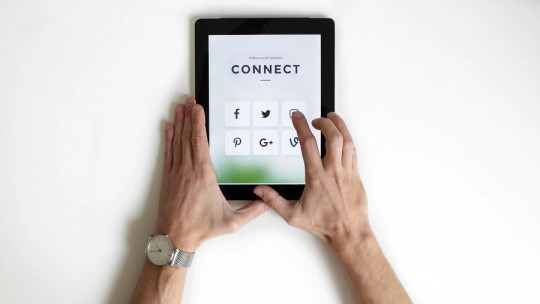
One of the most striking characteristics of social networks is that, despite having been artificially created through lines of programming, their operation seems to “fit” perfectly with something as natural as the human brain. This makes us capable of losing track of time doing scroll down and, having tried to entertain ourselves for a little while, we realize that we have spent an hour glued to the smartphone.
In short, these digital platforms have a great capacity to take advantage of the vulnerabilities of the human mind to capture our attention again and again. However, in some cases, the user not only spends many hours in a row on pages like TikTok or Instagram; In addition, you get used to constantly checking social networks, to the point that you do it without realizing it: put your hand in your pocket, take out your cell phone, and check Twitter or Facebook without a specific purpose.
Why do I watch social networks so much? This is a question that many of those who experience this phenomenon in their daily lives ask themselves, noticing that it prevents them from concentrating on what is important or even causes them to waste time. In this article I will tell you what are the main causes that, combined, can explain this.
Why do I check social media constantly?
This is a multi-causal problem, given that there is no single “mental spring” that unidirectionally activates this behavior of checking social networks; In any case, there are different mental processes that combine and lead the person to associate these actions with temporary well-being (or at least, a relief from the discomfort that was felt before accessing those Internet pages).
Taking this into account, let’s look at the main causes of that “I constantly check social media” feeling.
1. Social networks offer a form of immediate escape
First of all, it is important not to overlook that social networks are perfectly designed to “sneak in” at any moment of day-to-day life; going to the bathroom, waiting for the bus, being in the elevator, etc. Its interface tries to be as intuitive as possible and offers renewed content in a matter of fractions of a second so they guarantee immediate entertainment.
Therefore, resorting to social networks over and over again ends up being a habit of all those people who want to escape from what surrounds them, either out of boredom or the discomfort that their daily lives generate. Precisely that feeling of losing track of time is what many seek.
On the other hand, the torrent of content offered by social networks is not only interesting in itself; In addition, it is filtered taking into account the preferences of each user, since these digital platforms store a lot of data about each person.
2. The Internet is the core of young and adolescent socialization
On the other hand, we must not forget psychosocial aspects such as the fact that currently the majority of young people and adolescents They have social networks as the “lobby” of their socialization space ; There they plan their meetings, establish conversations with the other young people they know by sight, etc. For this reason, many young people get into the habit of constantly checking pages like Instagram or TikTok to make sure they don’t miss anything that is happening in their circle of friends and acquaintances.
3.Orbiting
In some cases, the tendency to check social networks over and over again has to do with orbiting; This phenomenon occurs when a person who has been sexually attached to another in the past begins to give them false hope through interactions on social networks, “testing the waters” while studying the possibility of reestablishing that relationship but, at the same time, not communicating adequately and acting erratically, combining displays of interest with moments in which the other is ignored.
This incongruity usually generates a state of anxiety in those who suffer from orbiting and you get used to trying to decipher what is happening by paying close attention to social networks.
4. Low self-esteem linked to a need for external validation
In other cases, the main reason why a person becomes obsessed with checking their pages on social networks is linked to low self-esteem. This occurs in those who pay close attention to the interactions their publications obtain, the engagement of your comments, photos and videos.
5. Poor time management
For many people, monitoring social media frequently is your way of dealing with indecision about what to do next That is to say, having a poorly structured schedule increases the probability of ending up in these dynamics, in the form of a procrastination routine.
Psychotherapy can help you stop using social media so much
As we have seen, this problematic tendency to check social networks over and over again does not have a single cause, but several of them, and most of them have to do with problems of managing impulses and emotions, which gives gives rise to a series of routines that the person internalizes and that become part of their repertoire of “automated” behavior patterns.
Luckily, all these causes can be addressed through psychological intervention: aspects such as low self-esteem, dysfunctional strategies to alleviate discomfort or time management are elements that are highly worked on within the framework of psychotherapy. Therefore, if you notice that this phenomenon is affecting you and you are looking for professional help to not depend so much on your social networks and your smartphone, contact me.
My name is Javier Ares and I am a General Health Psychologist; I can assist you in person or remotely through the online therapy format via video call.








